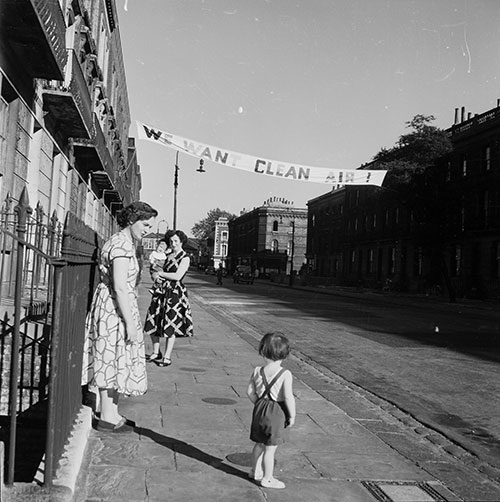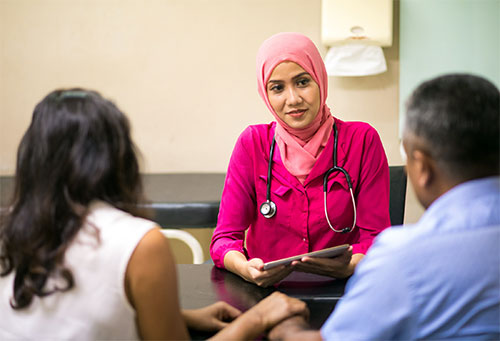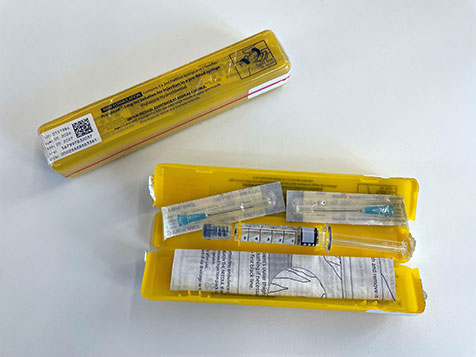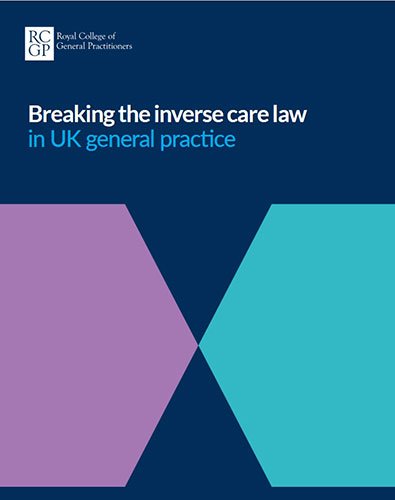Banner image: we want clean air protest banner, 1956. Henry Grant/London Museum.
"The current approach to healthcare, particularly by healthcare providers, has been that we are neutral beings and have no control over the system we work in, but this could not be further from the truth; we the health providers help define the system that we work in." Annabel Sowemimo, 'Divided' (2023)
Quote from Annabel Sowemimo's book Divided.
Patient voices
Every patient has a story. Healthcare is just one part of any person’s complex and challenging life. The following stories are from real people, gathered by Fairhealth. They worked with the oral history department of the University of Sheffield to capture these narratives. All patients gave consent for their stories to be published in this way. All names have been changed and identifying information removed.
Step back into time
Carey Lunan is Chair of the Scottish Deep End Project and a Senior Medical Advisor to the Scottish Government on health inequalities. She was previously Chair of the Royal College of General Practitioners in Scotland. She provided this quote in 2025 for the exhibition.
"Inspired by the work of Dr Julian Tudor Hart, the Scottish Deep End project was established in 2009 and over the years has been a powerful force for change. Through its projects, roundtable discussions and reports, conferences, education and engagement events, research, advocacy and involvement in policy work, we have helped to raise awareness of why the ‘Inverse Care Law’ needs to be addressed if we want to harness the extraordinary potential of general practice to mitigate persisting health inequalities. I have been the Chair of the Scottish Deep End project since 2020, and for me, it has been a privilege, a lifeline, and an inspiration to work so closely with a group of such dedicated and passionate GPs, who want to make a difference to the lives of their patients."
Martin Marshall talks about the importance of social prescribing in the practice he joined in Newham in 2013, just after the London 2012 Olympics had impacted on the area. He was interviewed for the College in April 2023.
“In many ways our practice reflected the East End of London. So, about half our patients were traditional Eastenders, so very socially deprived, very diverse, ethnically diverse. If there was a dominant group, it was probably South Asian, but all over the world, our patients came from; about 142 languages were spoken every day in our community. So, it was a really interesting community. So, about half the patients were traditional Eastenders, multicultural and poor. The other half were New Eastenders - young professional couples coming into London to work in the City or Canary Wharf. So, it was a very, very interesting practice to work in with very varying needs, depending on who you were serving at the time. I sometimes joke that I spent half my time raising people's expectations, and half my time trying to suppress their expectations of what we could do for them. It certainly felt like that. But I loved it. It was a very colourful community. I guess, for the first time - even more than say, Moss Side - I learned how important communities are, and what an asset a commitment to a community can be. So, often we were particularly using social prescribing. We were using community resources, not state resources, not government resources. And I had enormous respect for this very diverse group of people that often worked very closely together, because I guess, shared adversity as much as anything.”
Aaliya Goyal is a GP in the West Midlands and a nationally elected member of the RCGP Council.
“As a GP system clinical lead, I inputted into Health inequality projects. For one, I was part of a team working with a grassroots organisation. I gave clinical input to formulate patient information posters and radio adverts and oversaw radio phone-ins in multiple languages spoken by the Asian community.
“We held twelve face to face events in trusted spaces such as gurdwaras, mosques and temples, with healthcare professionals who reflected those we were trying to influence, giving out patient education with a shared understanding of language and cultural nuance, that had been missing from the conversations patients had in their healthcare journey.
“I was welcomed into spaces by people who were so grateful that we were there. Who wanted to listen, learn and ask questions. There was one event in a gurdwara where I met a woman who was in charge of the gurdwara’s kitchen. After listening to advice on simple dietary changes, which align with a South Asian diet, she approached me excitedly, as if a lightbulb had been switched on. “I cook 10,000 meals a week here...some people eat three meals a day from the food I cook…imagine the difference it would make to the community’s health if I reduced the amount of ghee and salt I use!”. Yes, imagine! People finally felt empowered. The enthusiasm was palpable.”
Clare Gerada trained as a psychiatrist and then a GP, working in South London. She was the first female Chair of the RCGP and later president. She was interviewed in August 2022.
“I qualified in ‘83 and I can vividly remember seeing the first patient with AIDS, as I was a casualty officer and at the time it was a little bit like we imagine with Ebola now: you almost had to close the entire department if somebody came in with AIDS. And when I started in Psychiatry HIV infection had moved from men who had sex with men to the intravenous drug-using population and estimates of up to 40, 50 even 80% of drug users were thought to be infected with HIV. So, it really was a crisis, and these patients were having to wait 18 months, two years, for treatment. So, I set up as a very junior psychiatrist what I called an Outreach Barefoot Doctor service in one of the needle exchanges. So, I used to take my little doctor's bag with blood-taking machines, some specula so I could do cervical screening on women, some dressings and some basic medicines and – it’d probably be illegal to do this now, probably CQC would have shut me down! But I used to provide very basic Primary Care Services to intravenous drug users and try to get them plugged into general practice and I did that, and I then started seeing drug users and it continued for the next 30 years. So that was my first example of working in a pandemic."
Richard Vautry is a GP partner in Leeds and President of the Royal College of General Practitioners. He provided this quote in 2025 for the exhibition.
“As a GP in Leeds for over 30 years I see on a daily basis the impact of health inequalities on peoples' lives. From the overweight young child who has already had multiple tooth extractions to the single parent requesting a letter to support rehousing because the damp in the house is worsening her children's asthma; from the 50-year-old unemployed man living with heart failure who struggles to stop smoking to the older woman who consults regularly with multiple conditions but whose fundamental problem is her loneliness. Every consultation is centred on that person's needs, but it is often much wider than that, with the social determinants of health having such a fundamental impact on the lives of so many people.
“My experience is mirrored by thousands of other dedicated GPs and their teams across the UK who do their best every day to care for their patients and respond to their concerns. However, this exhibition also demonstrates that for generations GPs have gone much further and have been at the forefront in exposing, challenging and working to address health inequalities. This exhibition is not just about our history, it's also about the current reality. The importance of recognising and addressing health inequalities remains central to improving health care provision, and it’s why it is one of the RCGP policy and campaigning priorities."
Thank you for your feedback. Your response will help improve this page.



